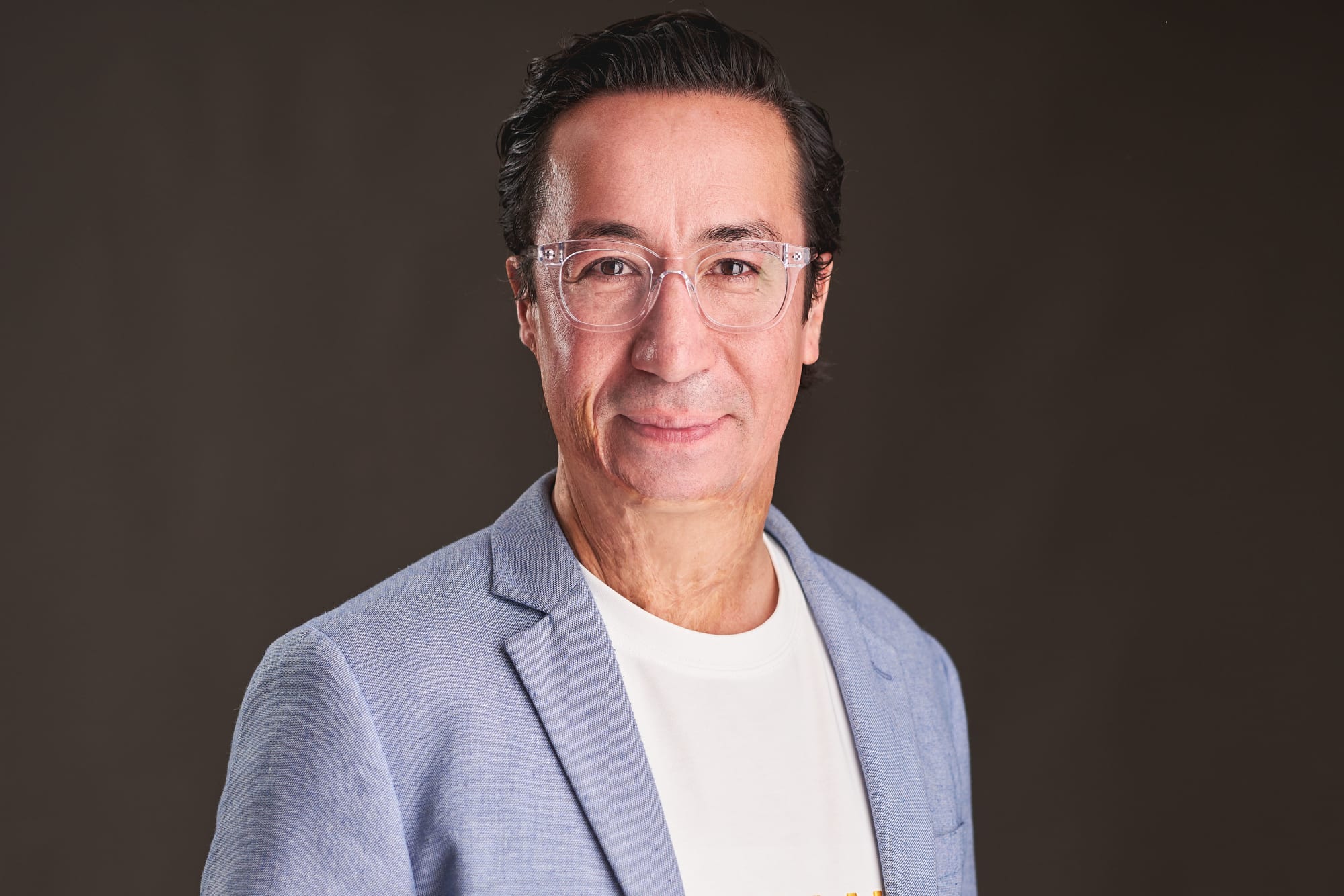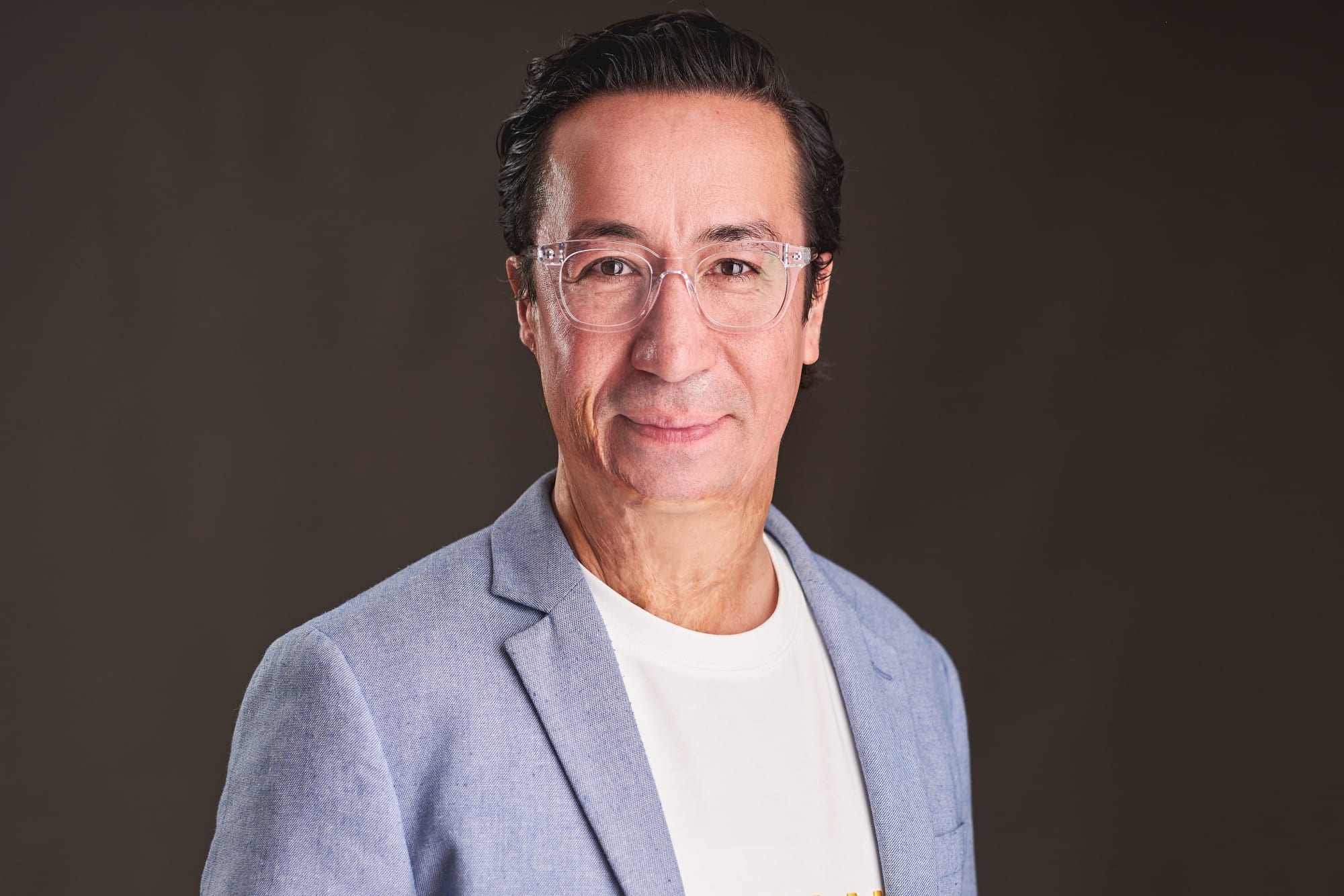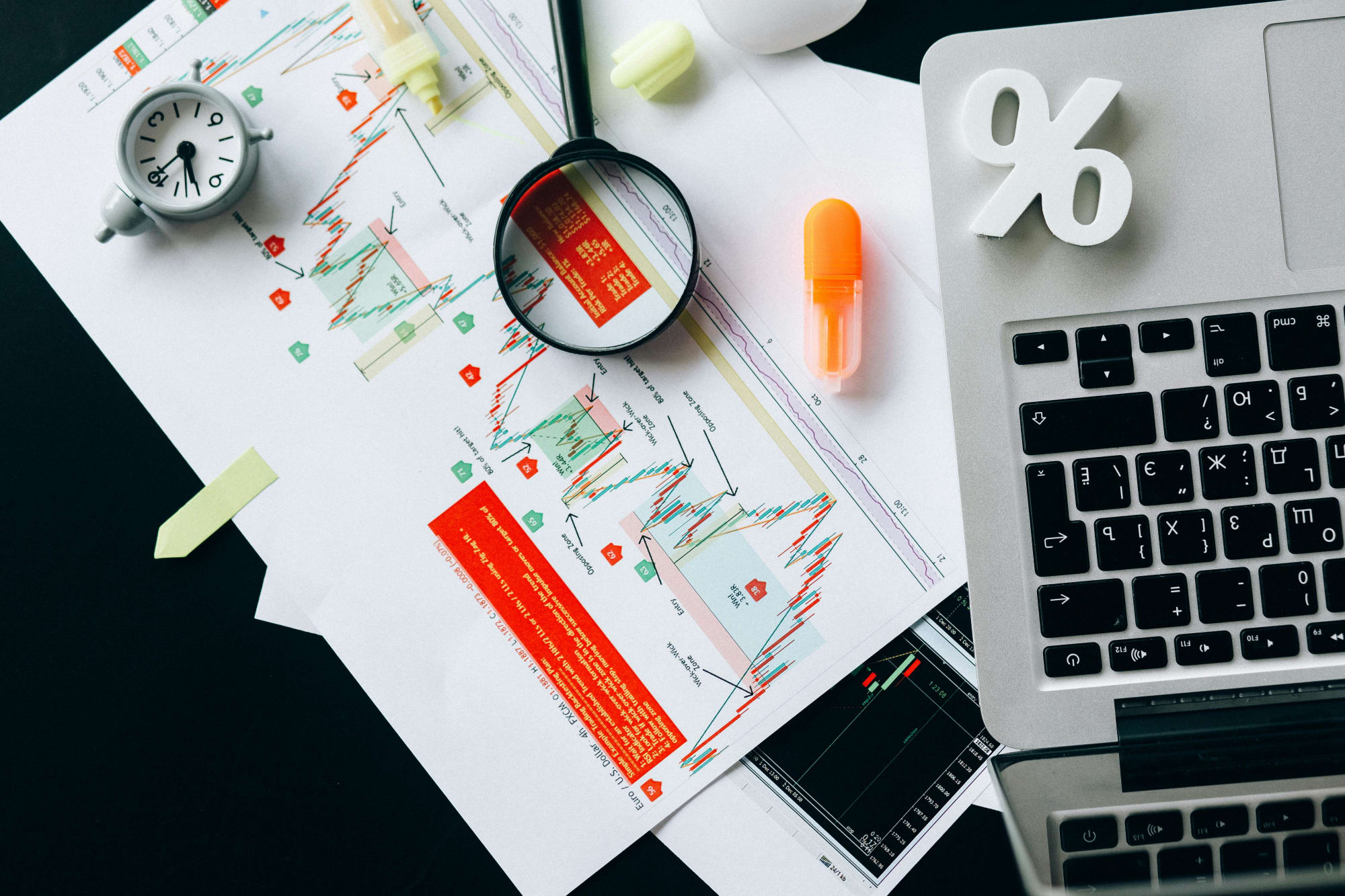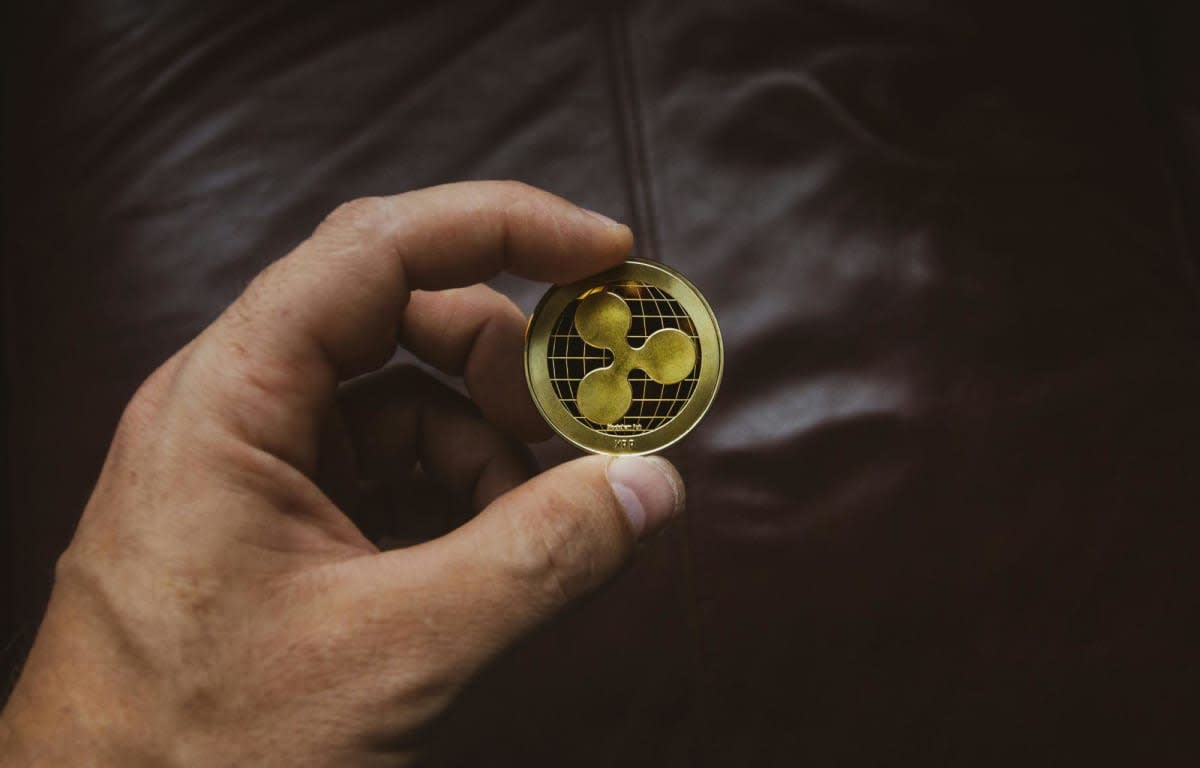Invest
Crypto could become vehicle for terrorism financing: IMF
The International Monetary Fund has warned that cryptocurrencies could become a major vehicle in terrorism financing, however there are ways to “fight fire with fire”.
Crypto could become vehicle for terrorism financing: IMF
The International Monetary Fund has warned that cryptocurrencies could become a major vehicle in terrorism financing, however there are ways to “fight fire with fire”.

Speaking in an IMF Insight, managing director Christine Lagarde said the “peril of crypto-assets” lies in the same things that make them attractive.
“These digital offerings are typically built in a decentralised way and without the need for a central bank. This gives crypto-asset transactions an element of anonymity, much like cash transactions,” she said.
“The result is a potentially major new vehicle for money laundering and the financing of terrorism.”
Ms Lagarde pointed to the AlphaBay criminal marketplace, which traded in illegal drugs, hacking tools, weapons and toxic chemicals. The site was taken down in July last year, but $1 billion had already been exchanged through cryptocurrencies by that point.

“Of course, money laundering and terrorist financing is only one dimension of the threat. Financial stability is another. The rapid growth of crypto-assets, the extreme volatility in their traded prices, and their ill-defined connections to the traditional financial world could easily create new vulnerabilities,” she said.
“So, we need to develop regulatory frameworks to meet an evolving challenge. Many organisations have already started.”
For example, the international Financial Stability Board, the inter-governmental Financial Action Task Force and the IMF are working to develop regulations, standards and guidance for countries attempting to combat money laundering and terrorist financing.
Nevertheless, Ms Lagarde said more needs to happen, arguing that “the same innovations that power crypto-assets can also help us regulate them”.
“To put it another way, we can fight fire with fire,” she said.
“Regulatory technology and supervisory technology can help shut criminals out of the crypto world.”
Distributed ledger technology, like blockchain, can be used to enhance information-sharing between regulators and participants, while artificial intelligence, biometrics and cryptography can be used to boost digital security and identify and monitor dodgy transactions in close to real time.
“We also need to ensure that the same rules apply to protect consumers in both digital and non-digital transactions,” the IMF head said.
“The US Securities and Exchange Commission and other regulators around the world now apply the same laws to some initial coin offerings (ICOs) as they do to offerings of standard securities. This helps to increase transparency and alert buyers to potential risks.”
With this in mind, Ms Lagarde called for international co-operation in regulating cryptocurrencies, again referencing the AlphaBay closure, which required Europol as well as law enforcement agencies in the US, the UK, France, Thailand, the Netherlands, Lithuania and Canada.
“Countries will have to decide collectively that this path is worth pursuing. Promisingly, the Group of Twenty (G20) has agreed to put crypto-assets on the agenda of its November 2018 summit in Argentina,” she said.
In her concluding comments, the IMF managing director acknowledged the intense debate around whether cryptocurrencies are a bubble, a fad or a financial revolution. However, she contended that the truth is “obviously somewhere in between these extremes”.
“As I have said before, it would not be wise to dismiss crypto-assets; we must welcome their potential but also recognise their risks,” Ms Lagarde said.

Cryptocurrency
Binance enhances user experience by introducing new fiat payment channels for Australians
In a significant move to streamline cryptocurrency transactions for Australian users, Binance Australia has announced the launch of direct fiat deposits and withdrawals via PayID and bank transfersRead more

Cryptocurrency
Institutional adoption and clearer regulation drive deeper integration of digital assets into mainstream finance in 2026
In a recent outlook, Binance Australia has highlighted the steady maturation of the digital asset industry, forecasting deeper integration into mainstream financial markets by 2026. The company ...Read more

Cryptocurrency
Australian investors embrace crypto as a core growth strategy
In a significant shift within the investment landscape, cryptocurrency has emerged as a key component of portfolio diversification and long-term wealth creation for Australian investorsRead more

Cryptocurrency
Ethereum and Niche Tokens Give Australia a Unique Edge: Kraken’s 2025 Wallet Analysis
Kraken, a prominent and secure global cryptocurrency platform, has unveiled a comprehensive analysis of millions of wallets from its Australian clientele, showcasing unique trends in crypto asset ...Read more

Cryptocurrency
Gemini strengthens Australian presence with new leadership and AUSTRAC registration
In a significant move to bolster its presence in the Asia-Pacific region, global cryptocurrency platform Gemini has announced a strategic expansion in Australia. This development includes the ...Read more

Cryptocurrency
Asset managers eye $235bn tokenisation opportunity as TradFi and DeFi converge
In a striking revelation, a global survey conducted by Calastone has unveiled a $235 billion opportunity for tokenised funds, highlighting a significant convergence between traditional finance ...Read more

Cryptocurrency
Big four bank pilots crypto‑backed mortgages: what it means for lenders, borrowers and the market
An Australian big four bank is trialling home loans secured by units in a regulated Bitcoin ETF — a cautious bridge between digital assets and traditional credit. If executed well, the model could ...Read more

Cryptocurrency
Webull launches cryptocurrency trading for Australian investors
Webull Securities Australia Pty Ltd, a subsidiary of Webull Corporation, has unveiled its cryptocurrency trading platform for Australian users, marking a significant expansion in the company’s ...Read more

Cryptocurrency
Binance enhances user experience by introducing new fiat payment channels for Australians
In a significant move to streamline cryptocurrency transactions for Australian users, Binance Australia has announced the launch of direct fiat deposits and withdrawals via PayID and bank transfersRead more

Cryptocurrency
Institutional adoption and clearer regulation drive deeper integration of digital assets into mainstream finance in 2026
In a recent outlook, Binance Australia has highlighted the steady maturation of the digital asset industry, forecasting deeper integration into mainstream financial markets by 2026. The company ...Read more

Cryptocurrency
Australian investors embrace crypto as a core growth strategy
In a significant shift within the investment landscape, cryptocurrency has emerged as a key component of portfolio diversification and long-term wealth creation for Australian investorsRead more

Cryptocurrency
Ethereum and Niche Tokens Give Australia a Unique Edge: Kraken’s 2025 Wallet Analysis
Kraken, a prominent and secure global cryptocurrency platform, has unveiled a comprehensive analysis of millions of wallets from its Australian clientele, showcasing unique trends in crypto asset ...Read more

Cryptocurrency
Gemini strengthens Australian presence with new leadership and AUSTRAC registration
In a significant move to bolster its presence in the Asia-Pacific region, global cryptocurrency platform Gemini has announced a strategic expansion in Australia. This development includes the ...Read more

Cryptocurrency
Asset managers eye $235bn tokenisation opportunity as TradFi and DeFi converge
In a striking revelation, a global survey conducted by Calastone has unveiled a $235 billion opportunity for tokenised funds, highlighting a significant convergence between traditional finance ...Read more

Cryptocurrency
Big four bank pilots crypto‑backed mortgages: what it means for lenders, borrowers and the market
An Australian big four bank is trialling home loans secured by units in a regulated Bitcoin ETF — a cautious bridge between digital assets and traditional credit. If executed well, the model could ...Read more

Cryptocurrency
Webull launches cryptocurrency trading for Australian investors
Webull Securities Australia Pty Ltd, a subsidiary of Webull Corporation, has unveiled its cryptocurrency trading platform for Australian users, marking a significant expansion in the company’s ...Read more








